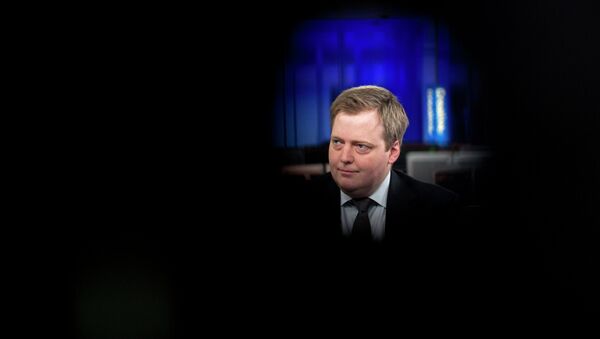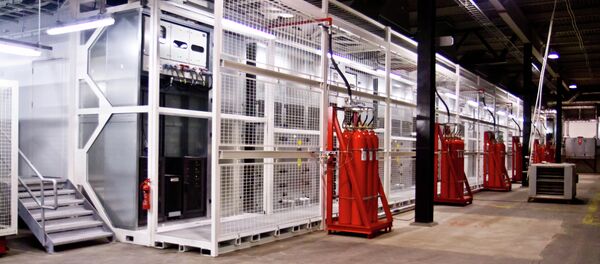“I strongly support all claims that the negotiations should be concluded, followed with a referendum concerning the membership. The people should decide, in a democratic process whether we should join the EU or not,” Gudmundur Steingrimsson, who also sits on the Icelandic parliament said.
Icelandic Prime Minister Sigmundur David Gunnlaugsson was quoted as saying Sunday by Icelandic newspaper Visir that Reykjavik’s participation in EU talks “isn’t really valid anymore” because of the “changes in the European Union and because it’s not in line with the policies of the ruling government to accept everything that the last government was willing to accept. Because of that, we’re back at square one.”
“I strongly oppose this move. I strongly believe that Iceland would benefit, with a good agreement, from EU membership,” Steingrimsson told Sputnik, highlighting that the rethink is “first and foremost a domestic issue in Iceland.”
Steingrimsson also noted that major players in the country’s agriculture and fishing industries have been very much against EU membership for a long time. At the same time, he said that while public opinion is divided when it comes to Iceland’s EU membership bid, “the large majority of Icelanders wants to conclude the negotiations and have a referendum concerning membership.”
This is the second attempt by the current Icelandic government to withdraw its application to join the European Union, which was submitted in 2009 following the global financial crisis. The previous resolution to withdraw the bid resulted in public protests and calls for a referendum on the issue.
“The ruling government is not in favor of EU membership for Iceland. Therefore it seeks, against a strong opposition, to withdraw Iceland’s application,” Steingrimsson explained.
Formal negotiations on Iceland’s accession to the European Union began in 2010, but after the country’s 2013 elections, the coalition government of the Progressive and Independence parties decided not to pursue the bid. Iceland is currently a member of the European Economic Area, the European Free Trade Association and part of the Schengen Area.




